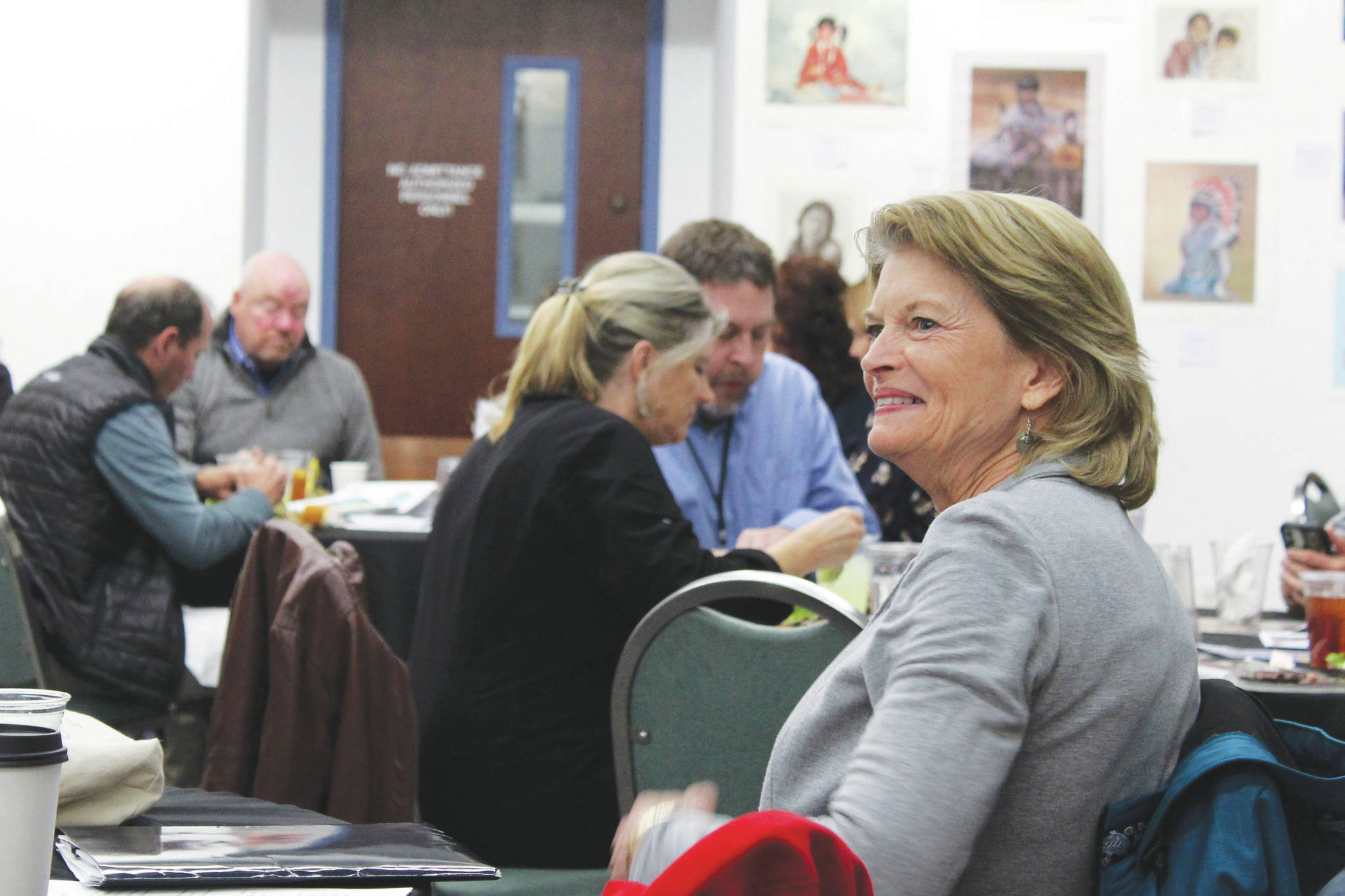Alaska stands to benefit from congressional efforts to bolster the nation’s infrastructure, U.S. Sen. Lisa Murkowski told Alaska reporters during a remote press conference Thursday.
The U.S. Senate voted Wednesday to begin debate on the legislation, which includes $550 billion in new federal investment in infrastructure, including roads, ports, bridges, rail and broadband.
Murkowski, a Republican, emphasized Thursday the bipartisan nature of the legislation now up for consideration by the Senate, the impact it would have on Alaska infrastructure and the significance of its scope.
“It is pretty historic, we haven’t seen this level of support and focus on infrastructure for our nation in decades,” Murkowski told reporters Thursday.
The U.S. Senate voted Wednesday to advance the measure with 67 votes in favor, which Murkowski said included 17 Republicans. In crafting the legislation, Murkowski emphasized that the process was bipartisan and involved a “core group” of 10 lawmakers from both sides of the aisle.
“It’s important to me to be able to be part of a bipartisan group of lawmakers that comes together and says, at a time when nobody thinks that any Republicans and Democrats in Congress can agree on anything, that we actually can come together to produce a product that we can stand behind and get members on both sides of the aisle to step forward and say this is going to be good,” Murkowski said.
In hashing out a deal, Murkowski said the group was guided by a commitment to what they call “hard infrastructure,” which they define as roads, bridges, rails, ports, water systems, broadband and other “legacy” initiatives. Elements of the package that stand to benefit Alaska, Murkowski said, include attention to air traffic controls, broadband, water and wastewater, and ferry services.
“We have got a provision in this legislation that will help us with the Alaska Marine Highway System, not only on the construction side, but with regards to operation and repair within the Alaska Marine Highway System,” Murkowski said.
The initiative ignited a nationwide debate over what could and could not be considered “infrastructure.” Some say the plan should include “human infrastructure,” including money for child care and tax credits for families, while others say it should be limited to “physical infrastructure,” such as roads and bridges.
Via Twitter, President Joe Biden likened the significance of the legislation to the transcontinental railroad and the interstate highway.
“We’ve reached a historic deal on infrastructure, folks. The Bipartisan Infrastructure Deal is the largest infrastructure bill in a century. It will grow the economy, create good-paying jobs, and set America on a path to win the future,” Biden tweeted Wednesday.
Murkowski said Thursday that it is difficult to quantify the amount of money that would come to Alaska via the legislation because funding will be determined by formulas and grant awards.
When asked about a proposal by some congressional Democrats to introduce alternative legislation that would be composed of projects that were eliminated from the legislation currently before the Senate as part of a bipartisan compromise, Murkowski said such an initiative would be “wholly partisan.”
“I can’t predict to you what is going to come in the wholly partisan bill, other than I can predict that it will be a level of spending that I believe will be reckless,” Murkowski said.
She added that the proposal reflects a common goal among all members of Alaska’s congressional delegation to help build the state’s economy.
“We’re all working together to try to build Alaska’s economy, and you help build Alaska’s economy when you’re better connected, when you can move around (and) when you have more efficient processes,” Murkowski said.
More information on the legislation can be found on the White House website at whitehouse.gov.
Reach reporter Ashlyn O’Hara at ashlyn.ohara@peninsulaclarion.com.

